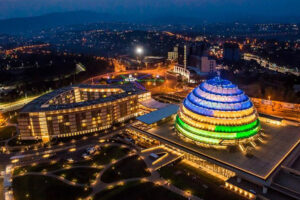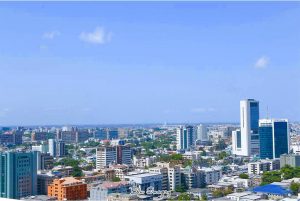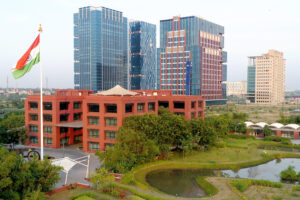Today the UN-convened International Network of Financial Centres for Sustainability (FC4S) welcomed its 36th member with Mongolian Sustainable Finance Association (MSFA), officially joining the network.
The Mongolian Sustainable Finance Association was founded by the Mongolian Bankers Association in December 2017, as a member-serving NGO. Today, the MSFA collaborates with all 12 banks, 7 NBFIs, 2 asset management companies, 1 Insurance firm, 1 business entity, and 1 NGO operating in Mongolia.
MSFA strives to promote sustainability and green growth by creating a green financing system and assisting Mongolian finance and business sectors to adopt activities that benefit both the environment and society. Current aims include directing Members’ activities to issues facing sustainable finance, proposing guidance to establish Environmental, Social and Governance (ESG) Risk Management Systems, and contributing to a balanced equilibrium between environmental, social, and economic growths.
Currently, FC4S collaborates on the development of an ESG reporting framework at the Mongolian capital markets, in collaboration with the Financial Regulatory Commission, Mongolian Stock Exchange, UNDP, UNEP, and IFC, which is expected to contribute significantly to the alignment of private sector operations with the SDGs.
“It is a great honour for MSFA to join the FC4S community. The MSFA has an ambitious goal to become a knowledge hub of sustainable finance. Green finance is in our genes rooted in our nomadic heritage” said Boldoo Magvan, Acting CEO of MSFA.
“FC4S is pleased to welcome MSFA as a new member. As we approach COP26 and discuss the role of sustainable finance, the perspectives of emerging economies such as Mongolia are very important. FC4S looks forward to MSFA making a valuable contribution to our various initiatives to accelerate the expansion of green and sustainable finance” said FC4S co-chair Jennifer Reynolds.
“By joining the FC4S Network, MSFA reinforces Mongolia’s willingness to support the implementation of commitments and policies under the Paris Agreement and the Sustainable Development Goals (SDGs). Our network will allow MSFA to share experiences and exchange information with global leading financial centres and enhance the implementation of projects and initiatives in the field of sustainable finance” said Stephen Nolan, FC4S, Managing Director.
About UN convened Financial Centres for Sustainability (FC4S)
Established in late 2017, the Financial Centres for Sustainability (FC4S) Network is a collective of 36 financial centres working together to achieve the objectives set by the 2030 Agenda and the Paris Agreement. As of July 2021, the 36 FC4S members include Abidjan, Abu Dhabi, Barcelona, Beijing, Busan, Cairo, Casablanca, Dublin, Frankfurt, Geneva, Guernsey, Hong Kong, Kigali, Lagos, Liechtenstein, Lisbon, London, Luxembourg, Madrid, Malaysia, Mexico City, Milan, Mongolia, Montreal, Nairobi, New York, Nur-Sultan, Paris, Rio de Janeiro, Seoul, Shanghai, Shenzhen, Stockholm, Tokyo, Toronto, and Zurich. It is estimated the network represents 82% of the global equity market and US$83.8 trillion equity market capitalization. The global scale of the collective’s vision is best represented by the regional variety of members, who all belief in driving convergence, exchanging experiences, and acting on shared priorities to accelerate the expansion of green and sustainable finance. FC4S is hosted by the UNDP.
About Mongolian Sustainable Finance Association
Founded by the Mongolian Bankers Association in December 2017, the Mongolian Sustainable Finance Association (MSFA) aims at introducing sustainable development, create sustainable finance, green credit and investment infrastructure, and leading sustainable development and green economic growth. To this end, it brings together members to establish ESG risk management systems and recommendations on issues related to sustainable finance and the development of a green economy. For more information, visit here.









































